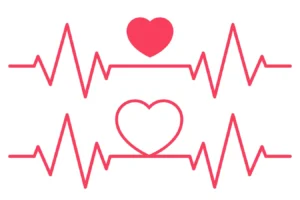If you want to know if you are pregnant, it is important to wait an appropriate period of time to perform the respective diagnostic test.
The news of an upcoming baby can bring up all kinds of feelings, depending on the circumstances surrounding the gestation process. If you want to know if you are pregnant, it is vital to wait a reasonable amount of time to do so.
There are various home tests available on the market. However, many experts advise taking blood tests available in laboratories to confirm or rule out pregnancy, as these are usually more accurate.
Generally, one of the first symptoms of pregnancy is the absence of menstruation. However, specialists say that this can be accompanied by nausea, dizziness, headaches, and vomiting, among others.
How many days will it take to know if I am pregnant?
If you want to know if you are pregnant, you can take a pregnancy test three or four days after your period is late, since from then on, a test of this type can be positive, according to Dr. Gustavo Batres, a Guatemalan gynecologist, and obstetrician.
In any case, if the result is negative and you are not convinced, you can repeat the test four to five days after the first test, as suggested by other specialized sources.
As for the urine pregnancy test, Medline Plus experts suggest that these be performed one to two weeks after the delay since high concentrations of the HCG hormone are needed to detect a pregnancy.
What are the symptoms of pregnancy?
- Menstrual delay
- Lack of energy/fatigue
- Swelling and tenderness in the breasts
- Frequent urination
- Nausea and vomiting
- Cravings
Other less frequent pregnancy symptoms
In addition to the common symptoms, the Mayo Clinic lists other rare signs that could also indicate pregnancy, including:
- Mood swings: You may experience more emotionality and sensitivity due to the hormonal changes that pregnancy produces.
- Light spotting: According to specialists, this is known as implantation bleeding and can occur about 10 to 14 days after conception. It sometimes occurs around the time of the menstrual period, but not all women experience it.
- Abdominal bloating: Swelling in the abdominal area can also be a symptom of pregnancy.
- Others: Other symptoms may include uterine cramps, constipation, changes in taste, and even nasal congestion, due to increased hormone levels in the body.
If you experience one or more of these symptoms, consult your gynecologist immediately for the necessary guidance.























+ There are no comments
Add yours